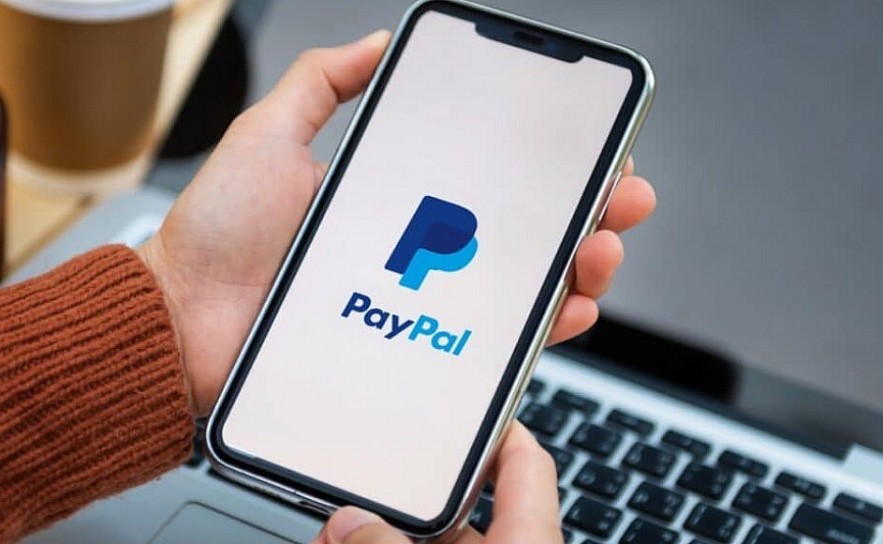Who Owns PayPal, and Will You Lose Money During Its Outage?
On the morning of November 21, 2024, millions of PayPal users reported difficulties accessing the platform, sending payments, or withdrawing funds. This outage caused widespread concern, especially among individuals and businesses that rely on the platform for daily transactions. But who exactly owns PayPal, and does an outage like this mean you could lose money?
In this article, we’ll delve into the ownership of PayPal and address the pressing question: Can you lose money when PayPal goes down?
 |
| Paypal |
Who Owns PayPal?
PayPal Holdings, Inc., a publicly traded company listed on the Nasdaq Stock Market under the ticker symbol PYPL, is one of the largest and most influential online payment processors globally. As of 2024, its ownership is shared among various institutional investors, mutual funds, and individual shareholders. Let’s break this down:
Major Stakeholders
Institutional Investors: Firms like Vanguard Group, BlackRock, and State Street Corporation own significant stakes in PayPal, collectively holding a substantial portion of its shares.
Individual Shareholders: Anyone can purchase PayPal shares through stock exchanges, making it a company with a diverse and global ownership base.
Leadership
The company is led by a CEO and board of directors who oversee its operations. As of September 27, 2023, Alex Chriss serves as the President and CEO of PayPal, bringing over two decades of experience in harnessing technology to assist individuals and small businesses in overcoming financial challenges
Historical Background
Founded in 1998: Originally created by Max Levchin, Peter Thiel, and Luke Nosek as "Confinity."
Acquired by eBay in 2002: PayPal became the primary payment processor for the e-commerce giant.
Spin-Off in 2015: PayPal became independent, focusing on expanding its services beyond eBay.
Today, PayPal serves over 400 million users globally, processing billions of dollars in transactions annually. Its widespread use makes it a critical tool for individuals and businesses alike.
Does a PayPal Outage Mean You’ll Lose Money?
The short answer is: No, you are unlikely to lose money permanently. However, outages can cause temporary disruptions or errors that might make your funds appear inaccessible. Let’s explore this in detail.
Why Outages Happen
PayPal outages, like the one on November 21, 2024, can result from:
Server Failures: Issues with PayPal’s infrastructure.
Software Updates: Glitches during maintenance or upgrades.
Cyberattacks: External threats like DDoS attacks can cripple services temporarily.
During such outages, users may face:
Delayed transactions.
Inaccessible account balances.
“Pending” payments stuck in the system.
PayPal’s Safeguards Against Money Loss
PayPal has robust systems to ensure the security of your funds, even during outages:
Real-Time Data Backups: Every transaction is recorded and stored securely, so no data is lost.
Pending Payments Escrow: If a transaction is interrupted, the funds are held securely until processed.
Automated Error Resolution: Once services resume, PayPal systems reconcile all transactions, ensuring your balance is accurate.
What About Rare Cases?
While permanent loss of money is rare, technical glitches or cyberattacks could cause:
- Temporary duplication or cancellation of transactions.
- Unauthorized transactions if account security is compromised.
In such instances, PayPal’s Buyer and Seller Protection policies typically cover any financial discrepancies.
How PayPal Handles Outages
PayPal has a well-defined protocol for dealing with outages:
User Notifications: Updates are shared via social media, email, or the company’s status page.
Transaction Resolution: Any delayed or incomplete payments are prioritized for resolution once the system is restored.
Compensation (if applicable): In rare cases of extended outages, PayPal may offer credits or refunds to affected users.
Most outages are resolved within hours, though complex issues could take longer.
Can You Protect Yourself During a PayPal Outage?
While PayPal takes significant steps to protect your funds, there are measures you can take to safeguard yourself:
a. Monitor Your Transactions
- Regularly check your account activity for errors.
- Save records or screenshots of important transactions for reference.
b. Enable Two-Factor Authentication (2FA)
Add an extra layer of security to prevent unauthorized access to your account.
c. Avoid High-Value Transactions During an Outage
Wait until the system is fully operational to minimize risks.
d. Stay Updated
- Follow PayPal’s official channels for real-time updates.
- Use outage tracking sites like Downdetector to confirm if the issue is widespread.
e. Diversify Payment Methods
Always have backup options, such as credit cards, bank transfers, or other e-wallets, to avoid disruptions.
The Broader Implications of PayPal Outages
PayPal outages don’t just inconvenience individual users—they can significantly impact businesses and organizations:
For Businesses
- Delayed payments can disrupt cash flow and cause customer dissatisfaction.
- Merchants reliant on PayPal may lose sales if customers cannot complete transactions.
Mitigation Tips for Businesses:
- Offer alternative payment gateways (e.g., Stripe, Square, or direct bank transfers).
- Notify customers proactively about the issue and provide updates.
For Consumers
Repeated outages may cause users to question the reliability of the platform, encouraging them to explore alternatives.
Will PayPal Improve After the November 21, 2024, Outage?
The recent outage highlights the need for enhanced systems to prevent future disruptions. PayPal could take steps such as:
- Upgrading its server infrastructure for better reliability.
- Providing more detailed real-time updates during outages.
- Offering automatic compensation for extended service interruptions.
As users, staying informed and prepared is essential in today’s digital economy.
Conclusion
While the PayPal outage on November 21, 2024, caused significant disruption, it’s important to note that losing money permanently is highly unlikely. PayPal’s ownership by trusted institutional investors and its strong protocols ensure the security of user funds, even during technical difficulties.
By taking proactive steps—monitoring transactions, diversifying payment methods, and staying informed—you can minimize the impact of such incidents. As for PayPal, the outage serves as a reminder of the need for constant improvement in the fintech space to maintain user trust and reliability.
FAQs: PayPal Outage and Ownership
1. Who owns PayPal?
PayPal Holdings, Inc. is a publicly traded company listed on the Nasdaq Stock Market under the ticker symbol PYPL. Its ownership is shared among institutional investors like Vanguard Group, BlackRock, and State Street Corporation, as well as individual shareholders worldwide.
The company is currently led by Alex Chriss, the President and CEO, who assumed the role in 2023.
2. Does PayPal own Venmo?
Yes, PayPal owns Venmo, a popular peer-to-peer payment platform. Venmo was acquired when PayPal purchased Braintree in 2013. Both platforms operate independently but share similar back-end systems.
3. What caused the November 21, 2024, outage?
As of now, PayPal has not provided an official explanation for the outage on November 21, 2024. Common causes of outages include server failures, software updates, or cyberattacks. Stay tuned to PayPal’s official channels for updates.
4. Will I lose money because of the outage?
Unlikely. PayPal’s systems are designed to protect your funds, even during technical disruptions. Any delays in transactions, duplicate charges, or "missing" payments are usually resolved once the system is restored.
5. What should I do if my payment is stuck?
If your payment is stuck during an outage:
-
Check your transaction history for updates once the platform is back online.
-
Contact PayPal’s customer support for assistance if the issue persists.
-
Keep any confirmation emails or screenshots for reference.
6. How can I avoid issues during a PayPal outage?
To minimize risks:
-
Delay high-value transactions until the platform is stable.
-
Use alternative payment methods (e.g., credit cards, bank transfers).
-
Enable two-factor authentication (2FA) to enhance account security.
7. Is PayPal reimbursing users for issues caused by the outage?
In cases of extended outages or financial discrepancies, PayPal may offer refunds or credits. Check PayPal’s official communication channels for announcements regarding reimbursement policies.
8. Is it safe to use PayPal after an outage?
Yes, PayPal remains a secure platform even after an outage. The company employs rigorous security protocols to protect user funds and data. If you notice any unusual activity, report it immediately to PayPal.
9. Can businesses rely on PayPal given these outages?
While PayPal is generally reliable, no platform is immune to outages. Businesses should:
-
Use multiple payment gateways (e.g., Stripe, Square).
-
Inform customers about alternatives during disruptions.
-
Monitor transaction records closely for reconciliation.
10. Where can I check if PayPal is experiencing an outage?
You can verify PayPal’s status through:
-
PayPal’s official status page or social media accounts.
-
Outage monitoring websites like Downdetector.
-
Notifications from your PayPal account (if available).























